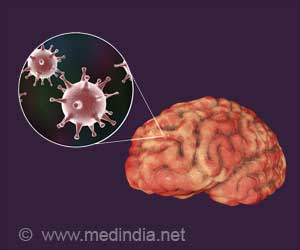Water pill may be viable to test as Alzheimer’s treatment as per precision medicine data dive.
Water pill may be viable to test as Alzheimer’s treatment as per precision medicine data dive at NIH/National Institute on Aging, published in the journal Nature Aging.
Alzheimer's disease (AD) is a neurodegenerative disease that leads to gradual memory loss and behavioral changes. It is characterized by the pathological
hallmark formation of beta-amyloid plaques and the tau proteins in the brain tissues, long (almost 20 to 30 years) before the actual symptoms occur.
One of the most significant genetic risk factors for late-onset Alzheimer’s is a form of the apolipoprotein E gene called APOE4.
A commonly used
potent oral diuretic pill (approved by the U.S. Food and Drug Administration), – bumetanide, holds as a
potential candidate for an Alzheimer’s disease treatment (among 1,300 known FDA-approved drugs that was tested) especially among those who are at genetic risk.
Water Pill Treatment
The study team analyzed the effects of the drug through electronic health record data sets from more than 5 million people to two groups: adults over 65 who took bumetanide and a matching group who did not take bumetanide.
It was found that
those who had the genetic risk and took bumetanide had a ~35% to 75% lower prevalence of Alzheimer’s disease compared to those not taking the drug. Advertisement
“We know that Alzheimer’s disease will likely require specific types of treatments, perhaps multiple therapies, including some that may target an individual’s unique genetic and disease characteristics — much like cancer treatments that are available today. The data in this paper make a good case to conduct a proof-of-concept trial of bumetanide in people with genetic risk,” says Jean Yuan, M.D., Ph.D., Translational Bioinformatics and Drug Development program director in the NIA Division of Neuroscience.
The team had analyzed information of gene expression signatures from a database of 213 brain tissue samples and verified the same via both mouse and human cell experiments along with the human population. The study thereby advances a
precision medicine approach for genetically greater risk individuals. Advertisement
“Though further tests and clinical trials are needed, this research underscores the value of big data-driven tactics combined with more traditional scientific approaches to identify existing FDA-approved drugs as candidates for drug repurposing to treat Alzheimer’s disease,” says NIA Director Richard J. Hodes, M.D.
Source-Medindia














